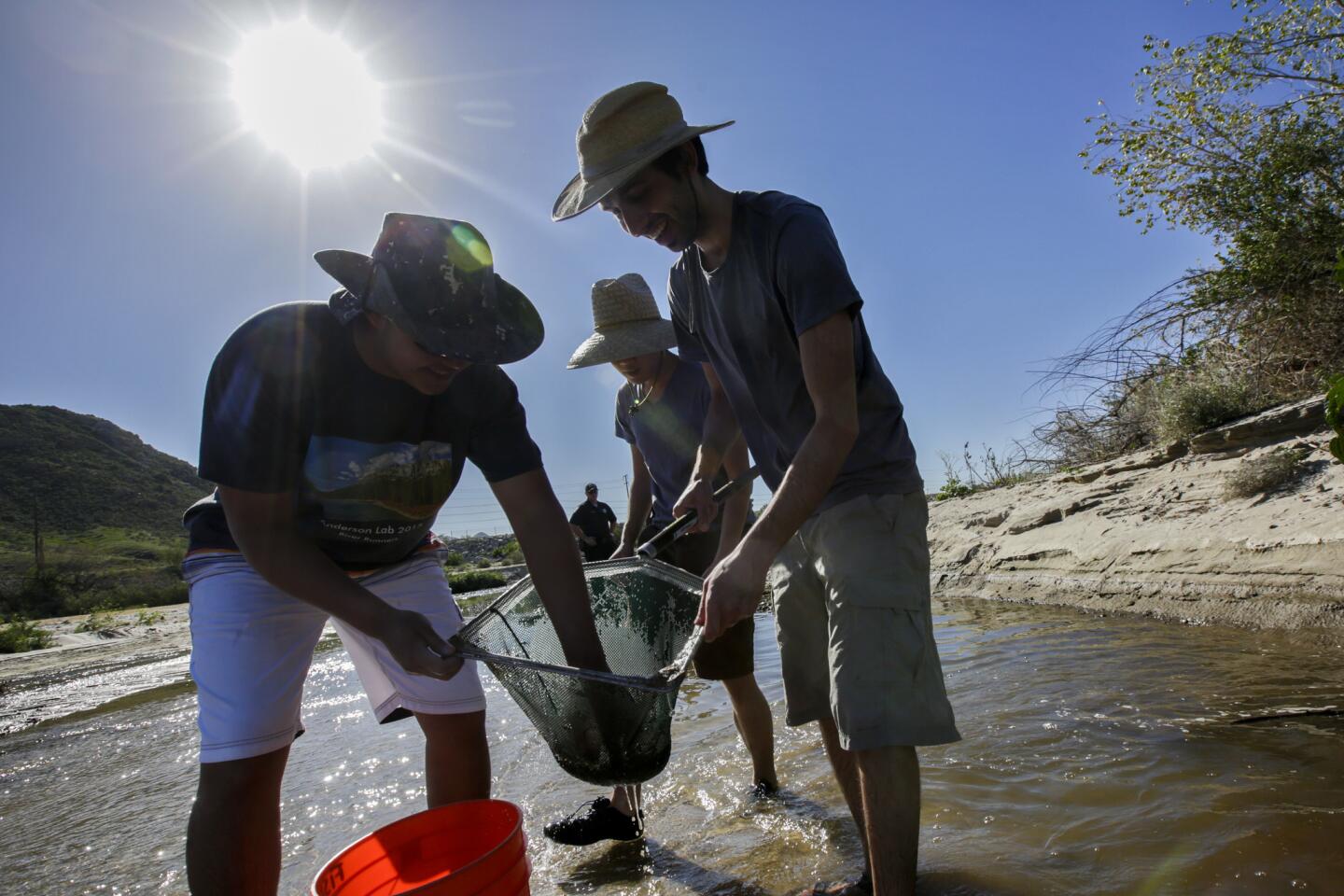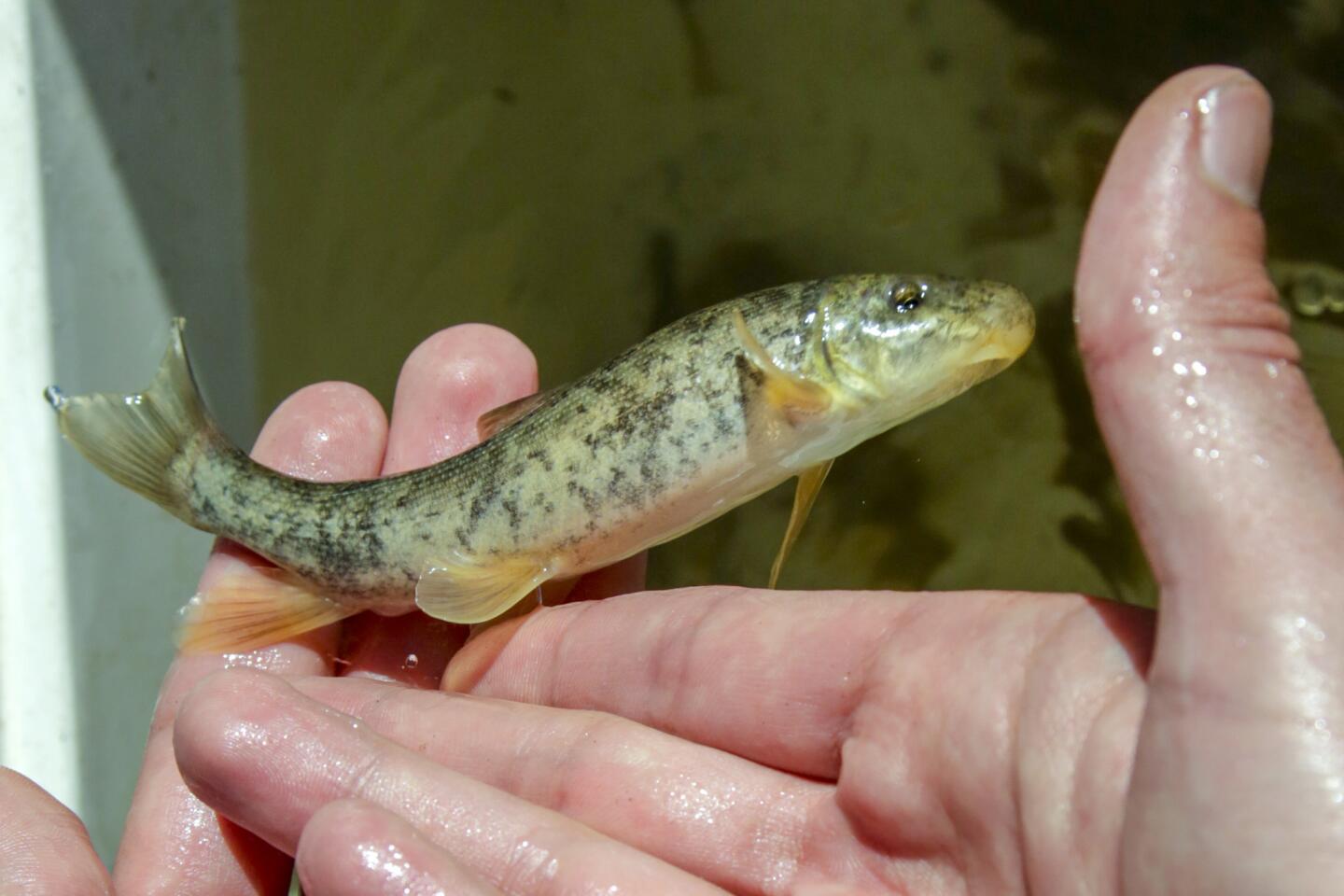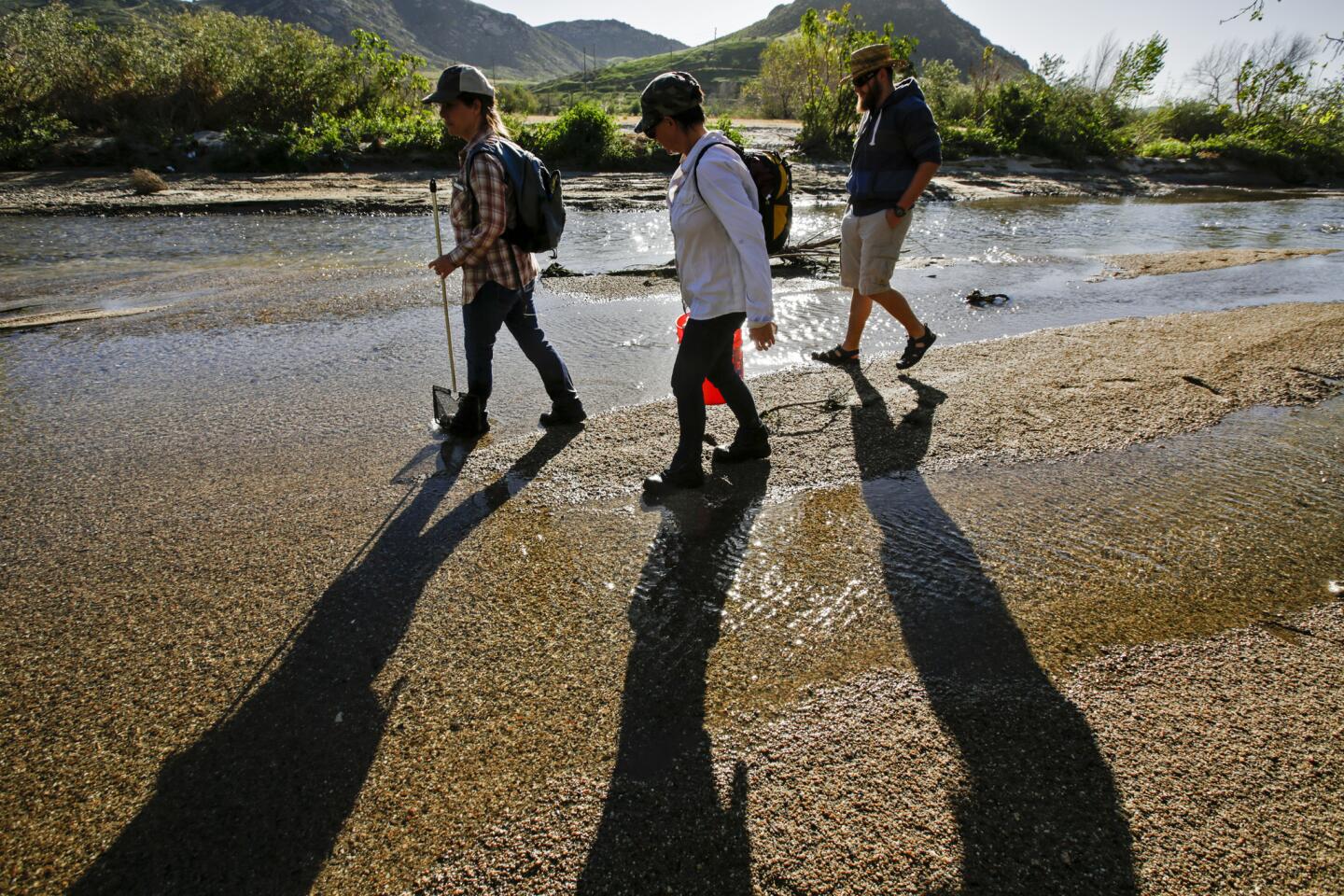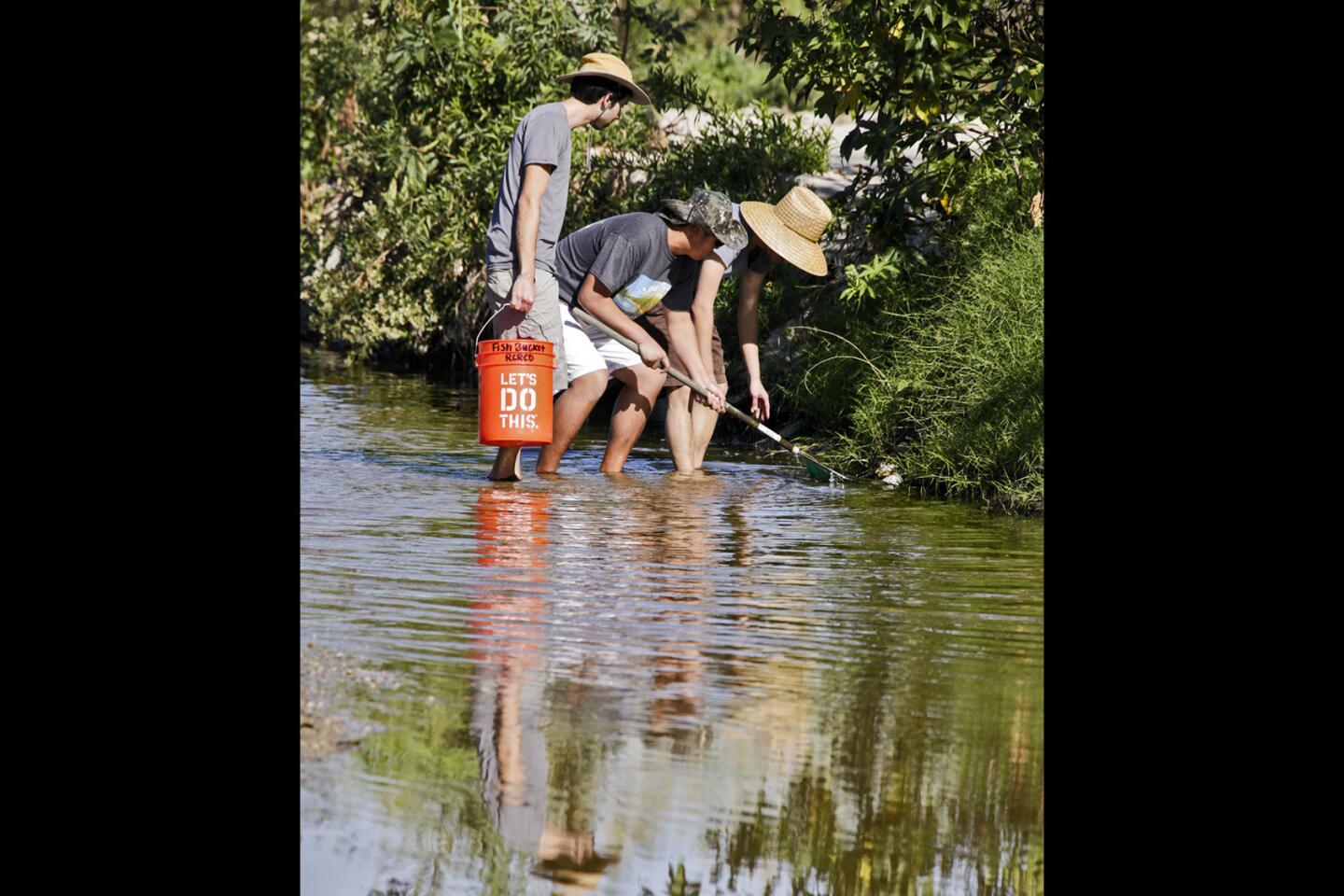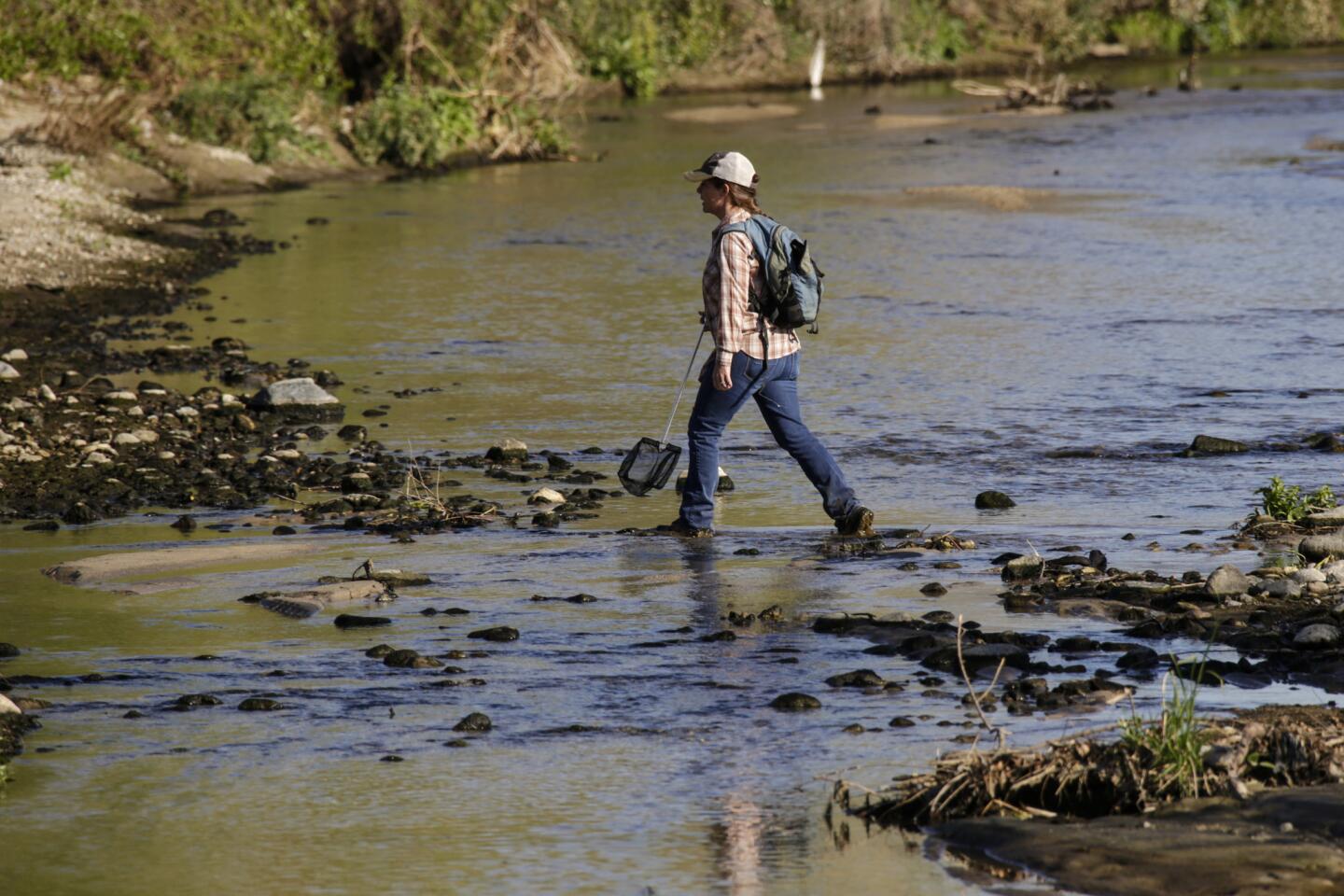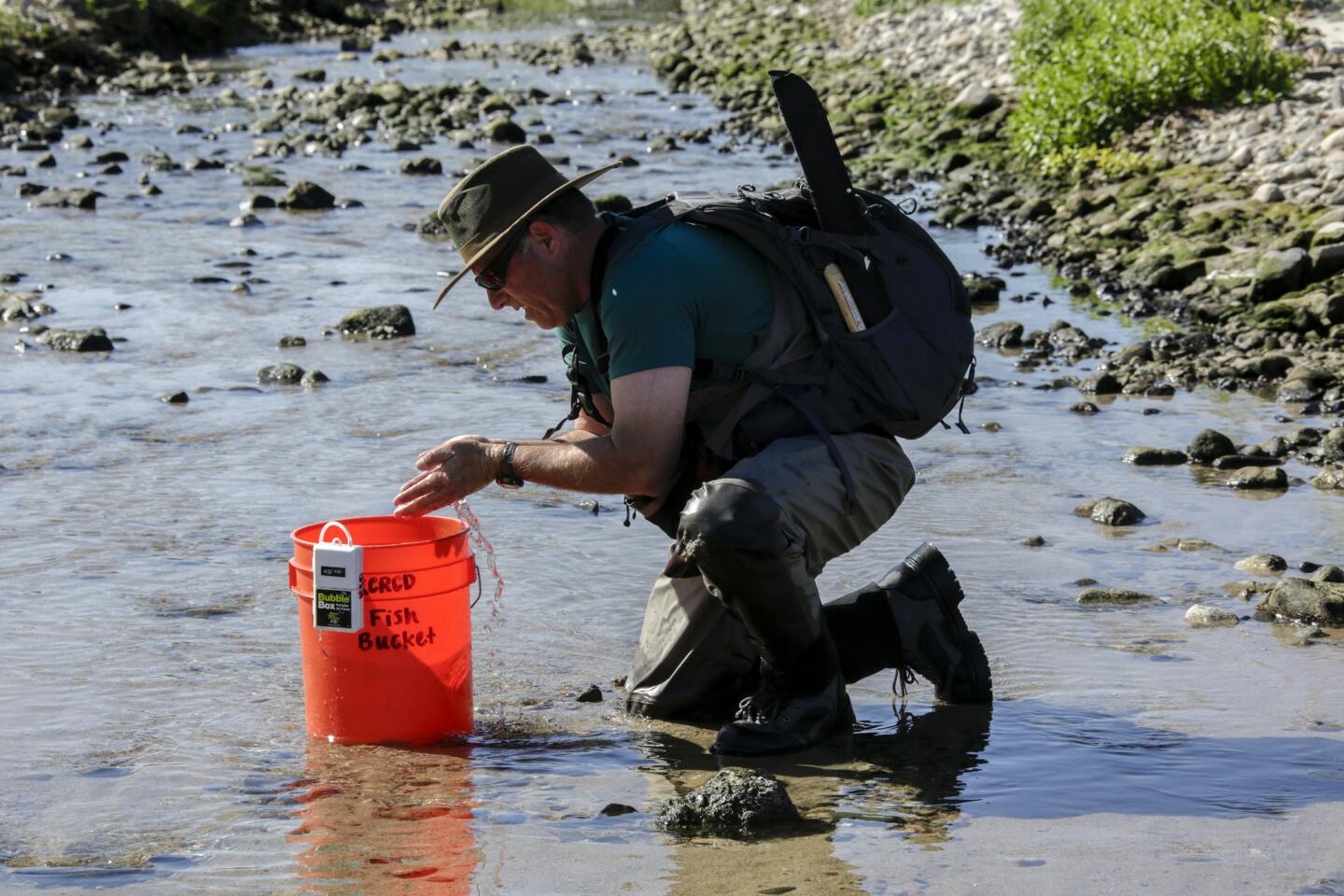Environmentalists to sue San Bernardino and Colton over the killing of threatened fish
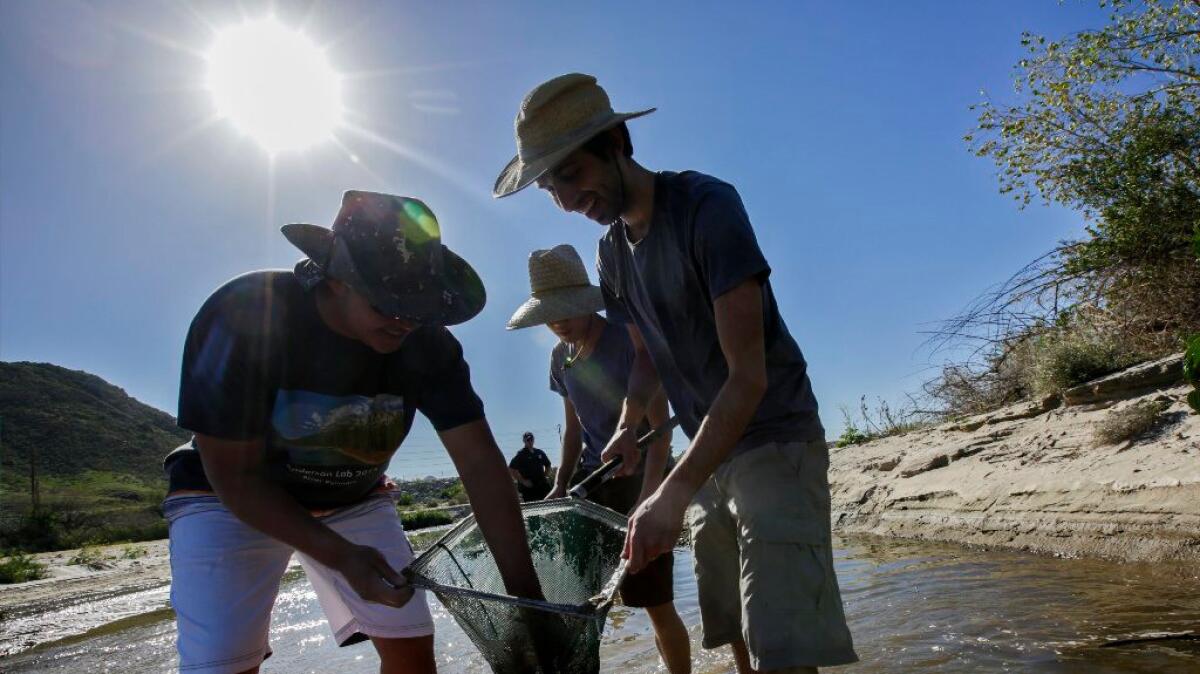
A coalition of environmental groups Monday announced plans to sue a regional water treatment authority and the cities of San Bernardino and Colton over the repeated stranding and killing of Santa Ana suckers, a fish on the federal threatened species list.
Roughly once a month, a water treatment plant that is jointly owned by the cities halts its outflows, quickly reducing a drought-stricken stretch of the Santa Ana River to a ribbon of dry gravel and stranding thousands of suckers.
During some of these events, U.S. Fish and Wildlife Service employees and volunteers rush into the vanishing puddles to rescue as many of the 4- to 6-inch fish as possible, placing them in buckets and ice chests filled with water.
A few hours later, treated water starts flowing into the river again and the crews return the fish to the stretch of critical habitat for the species that has lost more than 75% of the area where it historically lived.
The 60-day “notice of intent to sue” filed by the Center for Biological Diversity, Sierra Club and the San Bernardino Valley Audubon Society alleges the cities and their Regional Tertiary Treatment and Water Reclamation Authority allow the plant to kill suckers without a permit required by the Endangered Species Act.
“It is outrageous that the cities’ plant is allowed to get away with killing and injuring Santa Ana suckers,” Ileene Anderson, a biologist with the center, said. “So, once again we are having to take legal action to protect these fish from going extinct in their namesake river.”
In an earlier interview, Stacey Aldstadt, general manager of the San Bernardino Municipal Water District, said the treatment plant shuts down its outflows to conduct maintenance required by its operating permits.
Under federal restrictions, the city isn’t allowed to turn off the water because doing so threatens the fish. At the same time, however, federal water law requires the city to perform the regular maintenance because it is the only way to keep the plant’s discharge clean.
The problem was discovered in 2014, when a team of U.S. Geological Survey researchers reported seeing a large number of suckers floating belly up downstream in the Santa Ana River.
The plant’s average outflows of treated water have been halted at least 60 times over the last two years, according to Regional Water Quality Control Board records.
There have been 140 confirmed sucker deaths since June 2014.
The Water Reclamation Authority said it plans to make improvements to the waste water treatment system that would reduce the frequency of shutdowns.
The suckers, which scientists know as Catostomus santaanae, were once abundant across Southern California. They have mottled gray backs and silver bellies, and have large, thick lips and small mouths that vacuum or suck up algae and other organisms for food.
Today they are found in the headwaters of the San Gabriel River in Angeles National Forest, Big Tujunga Creek in the Los Angeles River Basin, portions of the Santa Ana River and parts of the Santa Clara River system in Los Angeles and Ventura counties.
ALSO
Hearst Castle remains closed as crews battle Chimney fire
Expedition documents sea life, habitat around Channel Islands
California voters will most likely legalize recreational marijuana this November
More to Read
Sign up for Essential California
The most important California stories and recommendations in your inbox every morning.
You may occasionally receive promotional content from the Los Angeles Times.
